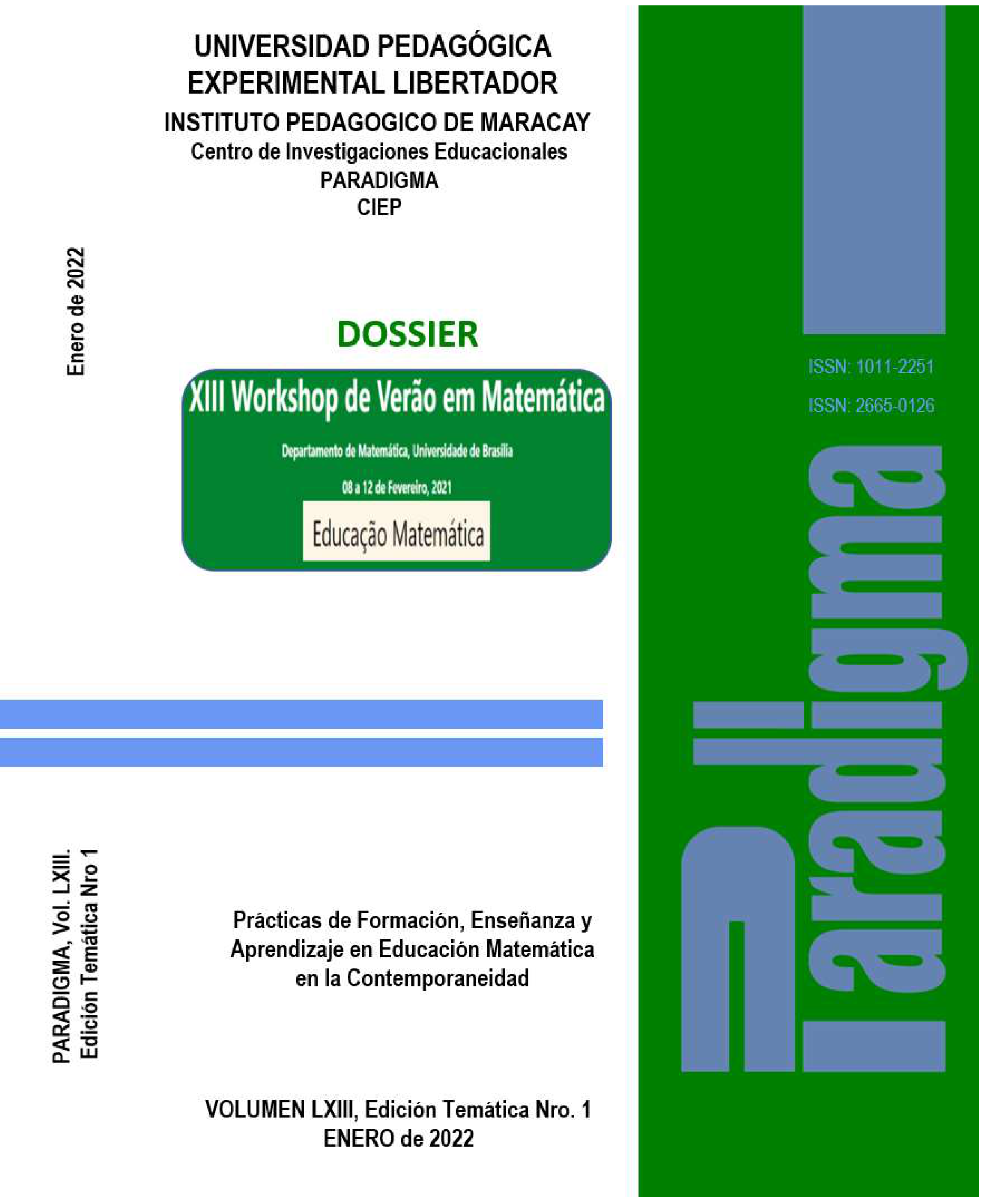A SOCIO-ECOLOGICAL TURN IN MATHEMATICS EDUCATION: REFLECTING ON CURRICULUM INNOVATION
DOI:
10.37618/PARADIGMA.1011-2251.2022.p207-228.id1168Keywords:
Socio-ecological, Curriculum innovation, Mathematics teachingAbstract
This article proposes that mathematics education has reached a socio-ecological turn. I identify three strands to this turn. Firstly, current advances in the sciences point to the interconnectivity of life and the ecologies living within and without human bodies. Secondly, advances in the humanities point towards the need to re-think human and non-human relations. And thirdly, the ecological precarity of the world points to the need to re-think the purposes and aims of mathematics education. Two possible curriculum innovations, in response to a socio-ecological turn, are offered. In one case, the curriculum starts from a pressing ecological issue facing a community. In the second case, in a more standard schooling context, a communal mathematics is promoted, with an emphasis on students asking their own questions. A commonality is the dramatization of the curriculum.Downloads
References
Barwell, R. (2013). The mathematical formatting of climate change: critical mathematics education and post-normal science. Research in Mathematics Education, 15(1), 1-16.
Bateson, G. (1972). Steps to an ecology of mind. Chicago: University of Chicago Press, 2000.
Bell, C. Ritual theory, ritual practice. New York: Oxford University Press, 1991.
Berkes, F., & Folke, C. (1998). Linking Social and Ecological Systems: Management Practices and Social Mechanisms for Building Resilience. Cambridge University Press.
Boylan, M.; Coles, A. Is another mathematics education possible? an introduction to a Special Issue on “Mathematics Education and the Living World: Responses to Ecological Crisis”. Philosophy of Mathematics Education Journal, 32, (November 2017).
Brown, L. (1991). Stewing in your own juice. In D. Pimm & E. Love (Eds.), Teaching and learning school mathematics – A reader (for OU course EM236) (pp. 3-15). London, UK: Hodder and Stoughton in association with Open University.
Coles, A. (2017). A relational view of mathematical concepts. In E. de Freitas, N. Sinclair, A. Coles (Eds.) What is a mathematical concept?. Cambridge University Press: Cambridge, pp.205-222.
Coles, A., & Brown, L. (2021). Differentiation from an advanced standpoint: Outcomes of mathematics teachers’ action research studies aimed at raising attainment. Mathematics Teacher Education and Development (in press).
Coles, A., & Sinclair, N. (2019b). Re-thinking ‘concrete to abstract’: towards the use of symbolically structured environments. Canadian Journal of Science Mathematics and Technology Education, 19(4), 465-480.
Coles, A., Sinclair, N. (2019a). Ritualization in early number work. Educational Studies in Mathematics, 101(2), 177-194
Enders, G. (2017). Gut: The inside story of our body’s most under-rated organ. Scribe publications: London.
Freire, P. (1970). Pedagogy of the oppressed. Cambridge, Continuum: New York.
Friedrichs, J. (2017). The future is not what it used to be: Climate change and energy. MIT Press: Massachessetts
Kimmerer, R.W. (2013). Braiding Sweetgrass: Indigenous Wisdom, Scientific Knowledge and the Teachings of Plants. Milkweed Editions October 2013.
Renert, M. (2011). Mathematics for life: Sustainable mathematics education, For the Learning of Mathematics, 31(1), 20-26.
Safina, C. (2015). Beyond words: What animals think and feel. Henry Holt & Co.: New York
Sfard, A. (2008). Thinking as communicating: Human development, the growth of discourses, and mathematizing. Cambridge, UK: Cambridge University Press.
Simard, S. (2021). Finding the mother tree: Uncovering the wisdom and intelligence of the forest. Allan Lane: London
Skovsmose, O. (1994). Towards a Philosophy of Critical Mathematics Education. Dordrecht: Kluwer.
Stengers, I. (2011). Comparison as a matter of concern. Common Knowledge 17(1), 48-63. https://www.muse.jhu.edu/article/418671 (accessed 1st March 2021).
Wolfe, C. (2010). What is Posthumanism? Mineapolis: The University of Minnesota Press.
Downloads
Published
Métricas
Visualizações do artigo: 925 PDF (Español (España)) downloads: 417


 English
English
 Español (España)
Español (España)
 Français (France)
Français (France)
 Português (Brasil)
Português (Brasil)




















































